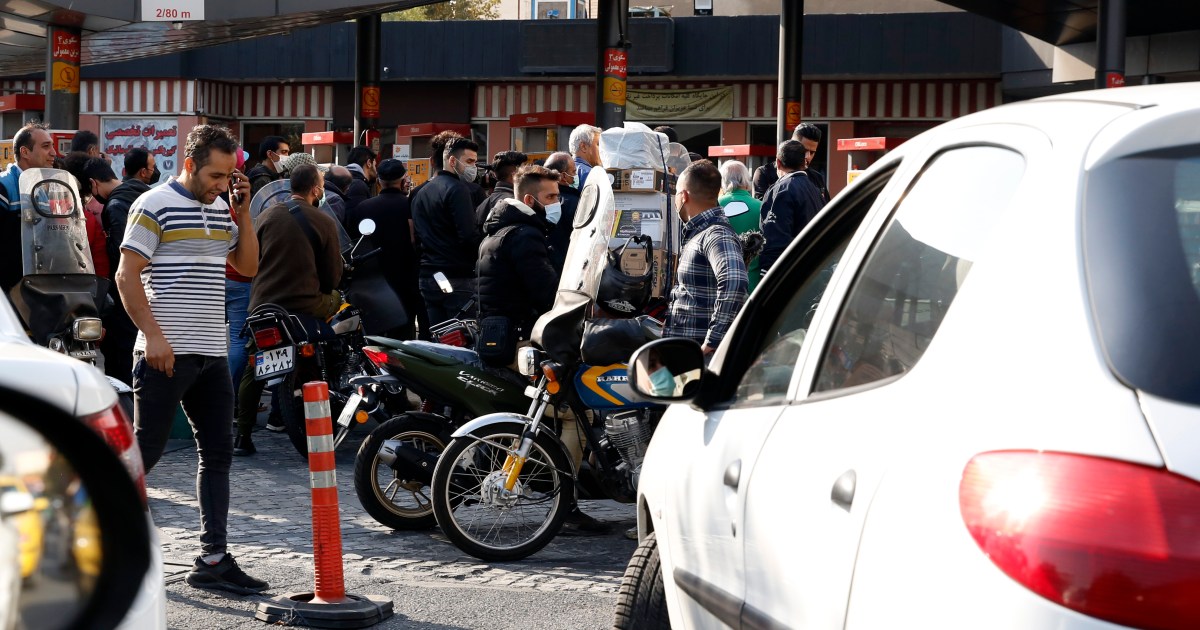The Secretary of the Supreme Council of Virtual Space in Iran, Abul-Hassan Firouzabadi, accused a foreign country - he did not name - of being behind the large-scale cyber attack that targeted subsidized fuel stations, causing long queues at the stations, and Firouzabadi added that it is too early to determine this country and the method that were used in the attack.
The Supreme Committee of the Virtual Space of the Supreme Council of Cyberspace announced, earlier on Tuesday, that the electronic systems of gas stations were subjected to a cyber attack, and indicated that the efforts of experts are continuing to address this problem and reconnect and activate the systems soon.
The Iranian Oil Ministry news agency (SHANA) reported that the ministry said that only sales with smart cards used in the cheaper subsidized gasoline were disrupted, and customers could still buy the higher-priced fuel.
Iranian media reported earlier that fuel filling stations in the capital, Tehran, and a number of other cities had stopped working due to a technical defect that affected the electronic systems of the fuel distribution network.
partial return
Officials on state television said that about half of the stations returned to work after technicians activated the manual operating settings, after the attackers disrupted the electronic functions at the stations.
Cars and motorbikes lined up outside gas stations in Tehran, and television broadcast footage of closed stations, as rows of cars formed nearby.
The cessation of fuel distribution at the stations amazed drivers and riders, in a country that is one of the world's richest in oil, and its derivatives are available at discounted and subsidized prices.
The Iranian Fars news agency indicated that the timing of yesterday's attack was linked to the approaching anniversary of widespread protests that erupted in mid-November 2019, due to the decision to increase fuel prices, in the midst of a severe economic crisis.
The Iranian Fars News Agency indicated that the timing of the cyber attack is linked to the approaching anniversary of widespread protests that erupted in mid-November 2019, due to the decision to increase fuel prices.
Iran says it is on high alert against any cyber attacks that it has accused the United States and Israel of launching in the past, while America and other Western powers have accused Iran of trying to disrupt and hack its electronic networks.
Previous attacks
In recent years, Iran has been the target of a number of cyber attacks.
In May 2020, the American newspaper "The Washington Post" reported that Israel was behind an information attack on one of the two ports located in the city of Bandar Abbas in southern Iran, in response to what the newspaper said was an Iranian electronic attack on Israeli civilian hydraulic installations. .
In February of the same year, the Iranian Ministry of Communications announced that it had repelled a cyber-attack targeting Internet service providers, which disrupted network connectivity for about an hour.
One of the most prominent cyber attacks that hit Iran dates back to September 2010, when the Stuxnet virus hit facilities related to its nuclear program, which led to a series of malfunctions in centrifuges for enriching uranium.
Iran accused the United States and Israel of being behind the attack, and a number of experts in the field of information security accused the American and Israeli intelligence services of masterminding it.

